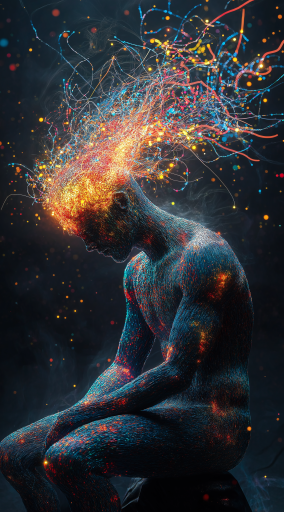Explore the Best AI Image Gallery

Harnessing IoT Innovations for a Smarter Home Experience
The Internet of Things (IoT) has revolutionized our daily lives, and perhaps nowhere is this impact more profound than in the realm of smart homes. From smart thermostats to connected security systems, IoT technologies are integrating seamlessly with our living spaces to provide convenience, efficiency, and enhanced quality of life. In this article, we explore the multifaceted impact of IoT on smart homes, its role in the creative industry, potential uses, ethical considerations, and future trends that could shape how we interact with our environments.
The Rise of Smart Homes
Smart homes utilize the Internet of Things to connect various devices and systems, allowing them to communicate with one another and be controlled remotely. This connectivity enables homeowners to automate everyday tasks, control energy consumption, and improve security measures.
Practical Applications
- Home Automation: Homeowners can control lights, thermostats, and appliances from their smartphones, setting schedules or responding to environmental changes in real-time.
- Energy Management: Smart meters and devices provide insights into energy consumption, helping users make informed decisions that reduce waste and lower bills.
- Enhanced Security: IoT-enabled security cameras and smart locks allow homeowners to monitor their properties remotely, enhancing safety and peace of mind.
Impact on the Creative Industry
From designers to marketers, the integration of IoT in smart homes presents new opportunities and challenges for the creative industry. Designers can create multifunctional spaces that seamlessly integrate technology while emphasizing aesthetic value. Marketing professionals can leverage data collected from smart devices to better understand consumer behavior, tailoring campaigns in a hyper-personalized manner.
Innovative Design Solutions
One particular aspect where the creative industry shines is in the design of user interfaces for smart home technology. Designers are challenged to create intuitive, user-friendly applications that enhance rather than complicate the user experience. This requires a delicate balance of creativity and functionality, as the ultimate goal is to make technology accessible to users of all ages.
Storytelling through Data
Marketers can extract valuable insights from the data generated by smart devices to construct compelling narratives about consumer lifestyles. The ability to personalize products and predict trends based on user interactions allows creative campaigns to resonate more deeply with audiences.
Ethical Considerations
While the benefits of IoT in smart homes are abundant, ethical concerns must be acknowledged. As our homes become increasingly connected, issues surrounding privacy and data security come to the forefront. Homeowners must be aware of how their data is collected, stored, and used by device manufacturers.
Privacy and Security
IoT devices often collect vast amounts of personal data. It is imperative that both consumers and manufacturers work together to ensure that secure protocols are established. Homeowners should educate themselves about the importance of securing their networks and using strong, unique passwords to safeguard their devices.
Consequences of Data Misuse
The potential misuse of data also raises concerns about profiling and surveillance. Companies could leverage this data to target users in manipulative ways or create discriminatory practices based on behavior analysis. Therefore, discussions regarding ethical data use are critical as smart homes become more prevalent.
Future Trends
The future of smart homes is bright, driven by continual advancements in technology. Emerging trends include:
- Increased Interoperability: As more devices enter the market, the need for interoperability will grow. A unified ecosystem will enhance user experience, allowing for easier integration and operation of devices from different manufacturers.
- AI Integration: Artificial intelligence will play a significant role in making smart homes more intuitive. Systems will learn from user preferences and patterns, further automating daily tasks to enhance comfort and efficiency.
- Sustainable Solutions: As the world increasingly shifts towards sustainability, IoT devices that monitor energy usage and water consumption will gain popularity. Consumers are becoming more eco-conscious, seeking technology that helps reduce their environmental footprint.
Conclusion
In conclusion, the rise of IoT in smart homes presents a unique intersection of technology, creativity, and ethics. As we embrace these advancements, it's paramount that we navigate the future with a keen awareness of how these changes affect our lives. Smart homes not only improve our day-to-day interactions with our environments but also influence broader industries and ethical considerations in a connected world. The continual evolution of IoT will pave the way for more innovative, efficient, and sustainable living experiences.



